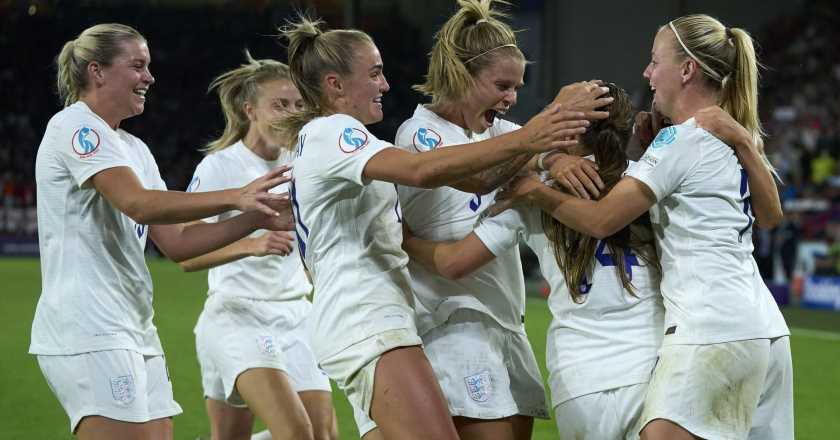
Think that last year was the first time that England had reached the finals of an international football competition since 1966? Think again – the women were in the 2009 Euro final, and they’re back again.
After smashing their way through the competition, England are through to the finals of the women’s Euro 2022 competition, and quite rightly, the whole nation is beside itself with excitement. Last year, Gareth Southgate’s team managed to help us forget – however fleetingly – about Covid-19, with people up and down the country truly believing that football really was coming home.
Sadly, the men lost during penalties – but their team came the closest to lifting the cup since 1966. For the women, however, it’s a different story. We’ve not had 56 years of hurt; England actually reached the finals of women’s Euro 2009.
You may also like
Euro England 2022: why women's football makes everyone, man or woman, want to be a Lioness
Under Arsenal legend Faye White’s leadership, our women stormed to the finals of the UEFA Women’s Euro in Finland, eventually losing to Germany. That competition was the first time England had reached a final since 1984, when we lost to Sweden on penalties.
In fact, England women’s (more recently known as the Lionesses) have been way more successful than the men’s teams at the Euros. The women have been both finalists and semi-finalists twice, compared to the men who have only reached the semi-finals once before, and are now facing their first final.
It’s amazing to see how quickly attitudes have changed over the course of this Euro 2022 competition. This time last year, I remember wondering why don’t we celebrate women’s footballing successes as much as men’s? Fast forward 12 months, and even Frank Bruno has admitted that he was wrong not to support women’s football.
The Lionesses are a seriously impressive crop of players, with the likes of Lucy Bronze inspiring girls all over the world to get stuck into the game. She led her team to win the SheBelieves Cup over in the US in 2019, and scored during the 3-0 victory over Norway in the quarter-finals of the 2019 FIFA Women’s World Cup. Today, we’re hearing arguably more about players like her, Mary Earps and Beth Mead than national heroes like Kane and Sterling.
The FA Women’s Super League was only made fully professional back in 2018, with 200 players receiving full-time pay for the first time. That means that many of our players were juggling part-time jobs while playing for their clubs and country. The idea that so many lived such normal and probably quite hectic lives for so long – compared with their male peers – is pretty wild, if not inspiring.
When it comes to international football, there’s no need to pick a gender to support but when we have such a brilliant women’s team – which has a proven record of success – dare we hope that the current wave of support continues beyond Sunday?
For more news, workout ideas and healthy recipes, follow Strong Women on Instagram (@StrongWomenUK).
Images: Getty
Source: Read Full Article